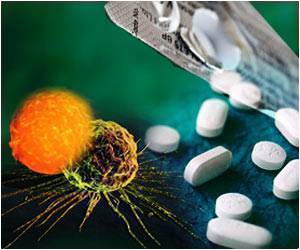High blood sugar levels in diabetes predispose to DNA damage and decreased ability by the body to repair this DNA damage, compared to persons with normal blood sugar levels, thereby increasing the risk of cancer.
Highlights:
- High blood sugar levels in diabetes predispose to DNA damage and also a reduced ability by the body to repair DNA damage, compared to persons with normal blood sugar levels, thereby increasing the risk of cancer
- Increased levels of chemically damaged DNA in the form of a DNA adduct termed N2-(1-carboxyethyl)-2’-deoxyguanosine or CEdG, as well as decreased levels of protein HIF1α involved in the repair of damaged DNA
- Better glycemic control and maintaining optimal blood sugar levels can reduce cancer risk in diabetics
Read More..
Elevated Blood Glucose and DNA Damage – Increases Cancer Risk
Currently, it is widely believed that hormonal dysregulation in diabetes increases cancer risk. However, Termini wanted to determine whether increased blood sugar levels found in diabetes could in some way damage DNA leading to instability of the genome and result in an increased risk."The most common idea is that the increased cancer risk has to do with hormones," Termini says.
"That’s probably part of it, but there hasn’t been a lot of solid evidence."
- Termini and his colleagues checked for possible DNA damage in the form of chemically altered DNA bases, referred to as adducts, in mouse models and tissue cultures of diabetes.
- Interestingly, they did find increased levels of a DNA adduct termed N2-(1-carboxyethyl)-2’-deoxyguanosine, or CEdG in diabetic mouse models compared to normal mice
- Also, they found that the ability of the cell to fix the DNA damage was impaired
- In a recent clinical study, the team also measured levels of CEdG, as well as its counterpart in RNA (CEG), in persons with type 2 diabetes and found raised levels of both compared to normal persons
Why is DNA Repair Affected in Diabetes
The study team further wished to explore potential mechanisms that may be responsible for the reduced ability of the cells to repair damaged DNA. They found that the activity of two proteins involved in the DNA repair process, namely, HIF1α and the signaling protein mTORC1, was reduced in diabetes. HIF1α stimulates several genes that play a key role in DNA repair"We found that if we stabilize HIF1α in a high-glucose environment, we increase DNA repair and reduce DNA damage," Termini says. "And mTORC1 actually controls HIF1α, so if you stimulate mTORC1, you stimulate HIF1α."
Hormonal Dysregulation Theory and Increased Cancer Risk in Diabetes
It is a well-known fact that diabetes increases the risk of cancer nearly two and a half times compared to persons who are not diabetic.- Scientists currently believe that the increased risk of cancer in diabetes is due to hormonal dysfunction.
- What happens is, in patients with type 2 diabetes, the activity of insulin is impaired and the pancreas secretes more insulin hormone trying to compensate resulting in hyperinsulinemia
- Insulin hormone is also known to stimulate cell growth and proliferation, which if it becomes uncontrolled can cause cancer
- Additionally, most people with type 2 diabetes are overweight, and excess fat tissue produces increased levels of chemicals called adipokines that stimulate inflammation, which if chronic can lead to cancer
Future Plans
- Currently, there are many drugs available that are known to stimulate HIF1α or mTORC1 already. The team plan to conduct further studies to check if these drugs may reduce cancer risk in animal models
- If the tests are successful, they plan to test the drugs in humans
- Metformin, a commonly prescribed anti-diabetic agent also stimulates DNA repair. The study team are also planning to test a combination of metformin and agents that stimulate HIF1α or mTORC1 in animal models
Source-Medindia
















